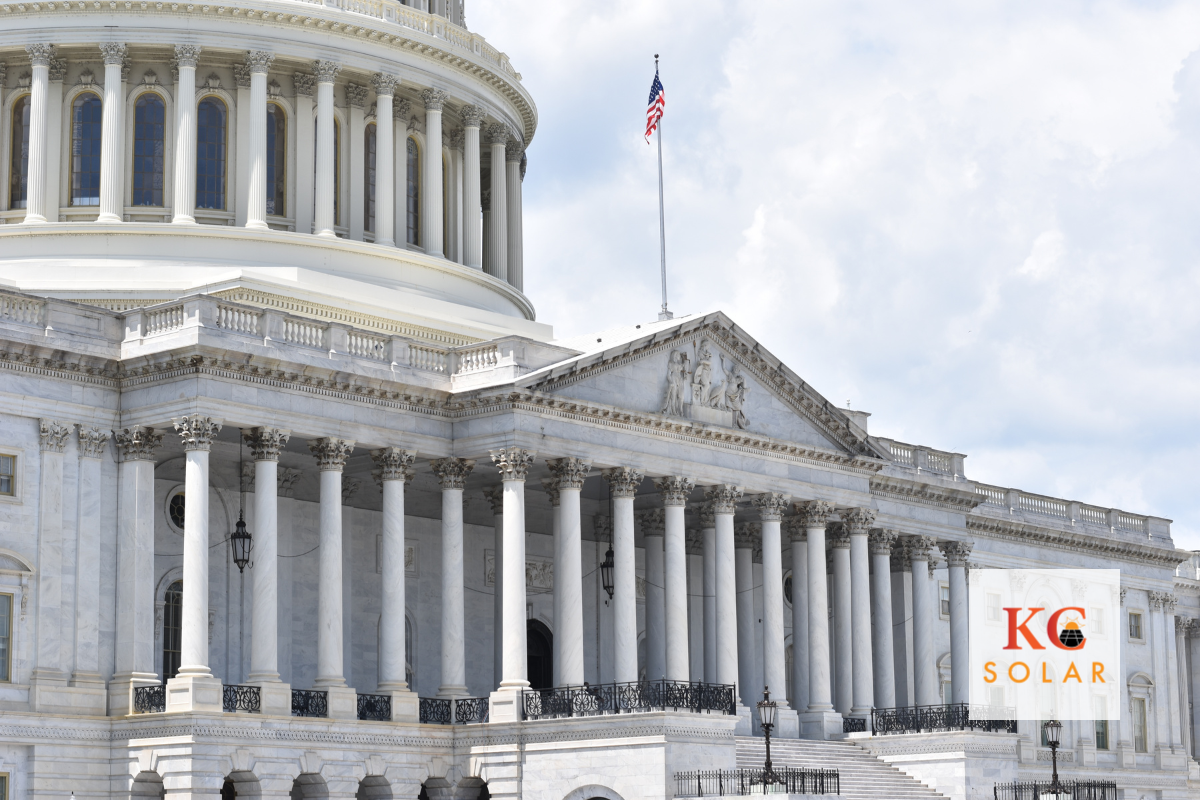In the ever-evolving landscape of renewable energy, net metering stands out as a key mechanism empowering homeowners and businesses to harness the benefits of solar power. It allows individuals to not only contribute excess energy back to the grid but also to accumulate credits for future use.
Keep reading to learn more about how net metering works, especially in Missouri and Kansas, and the struggles that other states are experiencing in regards to their net metering laws.
What Is Net Metering?
Net metering is the process by which homeowners are able to access and use a surplus of stored energy that they have collected over the years. On the higher production days, the extra energy that is not used is able to be stored away in the local power grid and used during lower production days.
In most cases, solar users are able to build on their net metering credit in the power grid during the summer months because of the longer, sunnier days. This power would be redistributed throughout the year to be used throughout the colder winter months with shorter day times.
With the right system and power efficiency, net metering can even out the power use throughout the year and provide some financial stability and allow for incredible savings.
How Does Net Metering Work in Missouri?
In Missouri, the state’s Net Metering and Easy Connection Act ensures that homeowners and businesses that switch to solar receive true net metering free of cost for any systems that pull in less than 100 kwh. Electric companies are required to use simple contracts to make this easy, as well.
How Does Net Metering Work in Kansas?
The Net Metering and Easy Connection Act in Kansas has many of the same rules but also stipulates that the extra energy that is built up by solar users only remains in the grid for the year it was generated as a credit, and is reduced to zero once the year passes. Solar users also are prohibited from receiving money for the extra power and are not allowed to sell the power to any other party.
Net Metering Around the Country
While the net metering laws in Missouri and Kansas have been stable for several years now, other places around the country are experiencing changes that are contributing to what’s being nicknamed “the Duck Curve” and “the Solar Coaster.”
Both trends have been seen in California in recent years. And while we know that California is generally a place with more favorable solar laws and infrastructure than in Missouri and Kansas, it doesn’t mean it’s all smooth sailing.
The Duck Curve, which is named for its distinctive shape resembling the profile of a duck, illustrates the difference between electricity demand and the solar energy generation pattern over the course of a day. The belly of the duck represents the period of highest electricity demand, while the neck and head symbolize the challenges posed by excess solar generation.
This curve represents the ebb and flow of electricity demand and solar generation throughout the day, creating unique considerations for power grid management. The integration of smart grid technologies plays a pivotal role in optimizing the grid to accommodate the duck curve. Advanced monitoring, communication, and control systems enable more efficient and responsive management of electricity flows.
Meanwhile, the Solar Coaster could refer to the solar market crash currently happening in the state. According to Solar Builder Magazine, at least 17,000 jobs were lost by the end of 2023 due to recent changes in net metering practices; the loss represents 22% of all solar jobs in California and is the largest loss of solar jobs in U.S. history.
The crash came on the heels of net metering changes proposed by the California Public Utilities Commission (CPUS) in November. While there were some positives, such as the removal of a grid participation charge, the dramatic drop in the export rate is likely to stifle the adoption of solar moving forward. Unfortunately, these trends have been seen in other markets, such as Nevada and Hawaii, when the export rate was reduced.
While it’s too early to say whether the same impact will be felt in California, it’s clear that net metering practices can truly make or break the success of a region’s solar outlook.
KC Solar Has You Covered in Missouri and Kansas
If you are looking for a Kansas City solar panel installation company, look no further than KC Solar. They are your local Missouri and Kansas solar panel installation experts. Once you schedule a no-pressure site visit, our experts will help you understand what solar system specifications would be best for your home or business.
KC Solar is a local company made up of KC natives with KC pride — in our city, and in our work. Which means we’ll always give you the best of ourselves.
And be sure to download our Free Solar Panel Buying Guide for more information.






